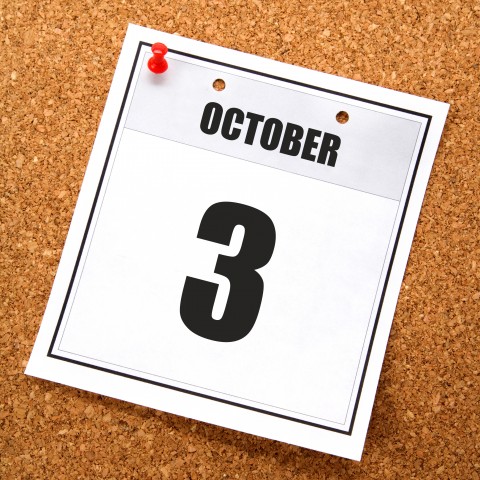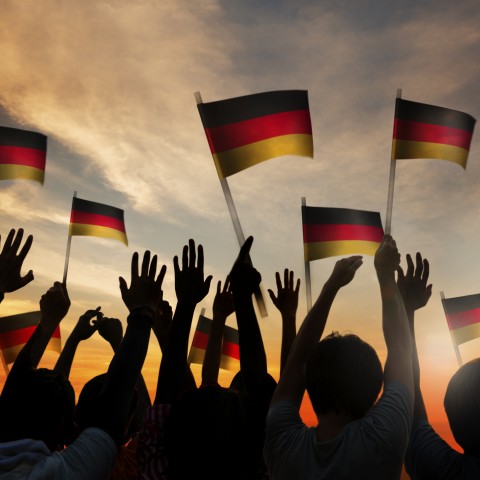At one point, Germany was divided into two sections, separated by the Berlin Wall. This division had many negative effects on Germans of both sides, including the inability to visit friends or family living on the opposite side. In 1990, the Berlin Wall fell at last, reuniting the two sides of Germany, and thus making the country what it is today.
In this article, we’ll be going over some more-detailed history leading up to the fall of the Berlin Wall and German Unity Day 1990, as well as current celebrations of this day. You’ll also learn additional facts about German Unity Day, such as why the holiday’s date was chosen.
Knowing this facet of German’s history will give you much insight into the Germany of today, and make your German learning that much more meaningful.
At GermanPod101.com, we hope to make every aspect of your language-learning journey both fun and informative!
1. German Unity Day History: What is Unity Day?
Germany was divided into two states before the fall of the Berlin wall—the German Democratic Republic (GDR) and the Federal Republic of Germany (FRG). Since reunification in 1990, the East German states have again been a part of the Federal Republic.
The East German government erected the Berlin Wall on the night of August 12 and 13, 1961, because they wanted to prevent the escape of people to the Western part. The wall tore families who lived in East and West Berlin apart and made it impossible to visit friends and relatives. While the East German population could not legally travel to the West, even the West German population had the option of traveling to East Berlin through certain transit routes only.
In the GDR, frequent protests were held in 1989. Many citizens called for “freedom to travel instead of mass exodus” and declared their displeasure in prayers for peace, among others, at the Nikolai Church in Leipzig. The motto of the Monday demonstrations was “We are the people!” The peaceful revolution developed into a mass movement across the GDR and thus increased the pressure on the government of the GDR to remove the Berlin Wall on November 9, 1989.
2. When is Unity Day of Germany?
Each year, Germans celebrate the German Unity Day on October 3.
3. German Unity Celebrations
A street festival is held every year in different state capitals of Germany, which is also called the Ländermeile (State Mile), and where everyone celebrates the reunification of Germany. For a few years, people also visit Berlin Concerts at the Brandenburg Gate and Straße des 17. Juni.
The term Ostalgie, which is a portmanteau of “east” and “nostalgia,” describes the currently existing curiosity about the East German way of life and the interest in former East German products such as the Trabant or Ampelmännchen (the walking figure seen in pedestrian traffic lights).
4. Why October 3?
Why was October 3 chosen as the German Unity Day holiday?
With the signing of the contract agreement, the reunification of Germany took place on October 3, 1990. November 9 has some negative connotations because of other historical events, so October 3 was chosen as the Day of German Unity.
5. Essential Vocabulary for German Unity Day
Here’s a glimpse of the vocabulary you need to know for Unity Day in Germany!
- Berlin — Berlin
- Thüringen — Thuringia
- Sachsen-Anhalt — Saxony-Anhalt
- Mecklenburg-Vorpommern — Mecklenburg-Western Pomerania
- 3. Oktober — October 3
- Einigungsvertrag — German reunification treaty
- Nationalfeiertag — National holiday
- Deutsche Wiedervereinigung — German reunification
- Brandenburg — Brandenburg
- Sachsen-Anhalt — Sachsen-Anhalt
- Neue Länder — New states of Germany
- Bundesrepublik Deutschland — Federal Republic of Germany
- Zwei-plus-Vier-Vertrag — Two plus Four Treaty
To hear each vocabulary word pronounced and accompanied by a relevant image, check out our German Unity Day vocabulary list!
How GermanPod101 Can Help You Learn About German Culture
What are your thoughts on this German holiday, and the history of division behind it? What’s the most important holiday in your own country? Let us know in the comments; we look forward to hearing from you!
To continue learning about German culture and the language, explore GermanPod101.com. We provide an array of fun and effective learning tools for every learner, at every level:
- Insightful blog posts on a variety of cultural and language-related topics
- Free vocabulary lists covering a range of topics and themes
- Podcasts and videos to improve your listening and pronunciation skills
- Mobile apps to learn German anywhere, on your own time
- Much, much more!
If you’re interested in a more one-on-one learning approach, be sure to upgrade to Premium Plus. Doing so will give you access to your own German teacher who will help you develop a personalized learning plan tailored to your needs and goals. Yes, really!
It takes a huge amount of dedication to set out learning a language, and even more to master that language. At GermanPod101, we know it’s not always an easy road. Know that you have our constant support, and that with enough hard work and perseverance, you’ll be speaking, writing, and reading German like a native before you know it!
Happy German Unity Day!













